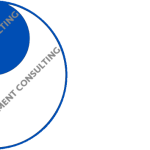Business management
now browsing by category
How to Foster Growth Through Innovation Consultants

Innovation is one buzzword that never seems to outgrow its welcome. Perhaps this is because when true innovation is effectively cultivated, growth always follows.
This can be easily observed in the nonprofit world, where funders are changing their funding habits and processes to better accommodate forward thinkers. For example, organizations like the Drucker Institute, established by famous innovation consultant Peter Drucker, dispense $100,000 annual awards to organization who bring about change “that creates a new dimension of performance.”
One effect of this elevated value of innovation is the spread of start-up culture into non-profits. Rather than traditional practical but dry paperwork-intensive funding cycles, organizations like Pitch It! hold Shark Tank-like showcases, where entrepreneurially minded non-profits pitch new and exciting ideas to a business-savvy panel.
This represents a cultural shift for many non-profits, who are accustomed to speaking the language of the academic – logical, straightforward, and terse. Now, the non-profits are learning to speak and think “entrepreneur,” – that is, excitedly, hopelessly optimistic, and inspirinal.
Innovation Consulting in For-Profit Businesses
Meanwhile, in the for-profit world, businesses are uncovering new uses for innovation consultants all the time. In doing so, they are re-discovering their entrepreneurial spirit and bringing a sense of excitement and adventure to the workplace.
In the current business climate, a passion for innovation is change is almost necessary to stay relevant in many industries. Leaders must not only navigate change, but also seek it out. In GeauxPoint’s white paper titled “2020: Can You Get There?” we identified the four major sources for change in the insurance industry, namely disruptive innovations, technological upheaval, consumer-culture shifts, and price-determination fluctuations. The same challenges are being posed to other industries besides insurance, as well. In cases such as these, innovation consultants often times are the first to spot large problems that may go undetected by entire industries
Increasingly, businesses are looking outside of their walls for assistance in dealing with large-scale changes. These organizations are reaching out to tech-savvy, trend watching professionals to help them blaze new trails.
A main benefit of this is that powerhouse consulting — such as that offered by world-leading consultants like Deloitte, Pew, Kaiser, etc. — is being brought down to the local level. Now, small and large businesses alike can meet face-to-face with knowledgably professionals who are dispersing from technological can innovative epicenters to smaller cities.
The rapid pace of innovation and change that is driving the demand for innovation consultants will likely continue for some time. As these consultants continue to scale up to meet demand for their services, businesses are eager to retain these professionals. A positive working relationship between an innovation consultant and business can be a lucrative venture and may even be a necessity for industries in the midst of transformation.
5 Reasons Why Businesses are Hiring Management and Technology Consulting Hybrids

Traditional business consultants are largely falling out of favor for management and technology consulting hybrids. While there are many business consultants who are truly worth their rates, a pervasive feeling in the business world is that a business consultant is someone who “takes your watch and tell you what time it is.”
There are five main reasons why businesses are opting to hire management consultants who are also business technology experts:
Reason #1: Business Don’t Know What They Don’t Know
This is a common problem as workplaces become more invested in powerful but highly complex technology. Often times, these businesses will hit a technology roadblock and have no idea how to overcome it. And while IT experts can straighten out the tech problem, the problem often lies at the crossroads of business and technology.
Reason #2: IT-Only Firms Are Not Understanding Business Objectives
Many times, clients seek help from the big IT firms or hire techno “geeks” to directly interact with business processes. While the valuable work of these professionals is not to be understated, their interest and focus lies sometimes exclusively with the tech and not the living, process-side of the equation. Frequently, this results in technology that runs fine but goes underutilized. Itcan also lead to an expensive misalignment of technology and business objectives.
Reason #3: Management and Technology Consultants Creatively Offer Solutions
IT firms are great if you already have a good idea of what you want, but unfortunately sometimes the solutions aren’t always so clear. A common mistake businesses make is feeding info to an IT person, only to have them completely misinterpret what was said. This can be a costly mistake.
Management and technology expert listen with both an ear for business goals and technology requirements. As such, they can help clients make informed decisions in regards to their sales, data management, security, and other goals.
Reason #4: Management and Technology Consultants Can Become Trusted Advisors
In many organizations, technology experts with business skills are moving up the corporate ladder and into the boardrooms since their input is necessary for modern problems. Those that have the propensity for business activities as well as the technology are valuable assets to the company. Someone who can wear both hats can make a great addition to a leadership team, especially in a part-time or contract capacity.
Reason #5: Top-tier Performance with Technology is a Necessity
Technology is slated to be the cause of most business growth for at least the short term future, according to a 2014 survey by McKinsey & Co. As such, technology-based leadership is growing in demand, and professionals who can do this are harder to find. Many businesses are getting their relationships in place now to strengthen their business/technology infrastructure for the future.
GeauxPoint Celebrates Six Years, Releases White Paper

GeauxPoint is pleased to release our newest white paper, “2020: Will You Get There? A Business Guide to Overcoming Disruption.” The paper helps business leaders prepare for change by listing four major sources of disruption and how to get past them.
The four categories of disruption according to the guide are 1) Disruptive innovation 2) Technology upheaval 3) Cultural Shits and 4) Changes in pricing determination.
The guide take a close-up examination of the banking, healthcare, non-profit, and business association industries. It also traces the histories of businesses that either succeeded or failed to navigate change. The paper uses these cases to demonstrate effective change-handling strategies.
The guide coincides with GeauxPoint’s entering into its sixth year. Over the last two years, we’ve more than doubled our book of business, adding multiple national and international clients.
Thought leadership is a core value of GeauxPoint, and as we grow, we intend to share as much of our knowledge as possible with our friends.
